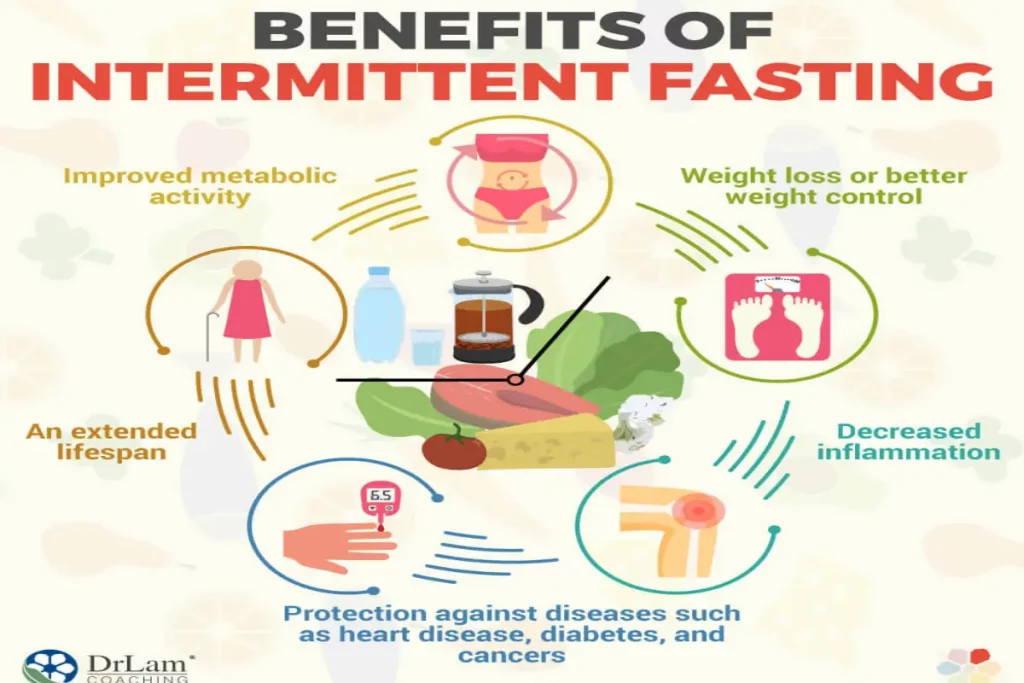Table of Contents
Introduction
Weight stability in intermittent fasting is a must-consider, as the intermittent fasting experience is a personal experience for everyone. So read with us between the lines about weight stability in it.
Benefits of Intermittent Fasting
In addition to the stability of weight in it, it has other benefits on the body’s organs, including:
- Memory: It promotes memory and thinking and reduces Alzheimer’s disease.
- Heart: This fasting improves blood pressure and heart rate.
- Diabetes and obesity: It reduces weight, eliminates obesity, and controls blood sugar levels.
- Muscles: It helps maintain muscle mass as well as reduce fat.
- Tissue: It maintains healthy tissues, reducing tissue damage during surgery and improving results.
Weight Stability in Intermittent Fasting
Intermittent fasting is a rife weight loss program at the moment. Still, intermittent fasting does not give the same result to all people, as intermittent fasting focuses on eating time and not on food quality.
In addition, some people may not be suited to experiencing intermittent fasting, especially eating disorders or certain health conditions.
Studies do not indicate that weight stability in intermittent fasting is directly established. Still, if intermittent fasting remains adopted as a lifestyle, it helps stabilize weight, and people in the foot eat one or two meals during the day early.
Weight stability may occur in intermittent fasting but it generally helps reduce body weight by 3-8% over 3-24 weeks and helps reduce waist circumference by approximately 4-7%.
Intermittent Fasting Methods
Fasting 16 Hours
Easy, flexible and most common methods and systems, used by many people, rely on eating for eight hours and fasting for 16 hours and enable people to eat vegetables, fruits and healthy fats.
Reducing eating hours during the day helps you lose weight, lower blood pressure, and do resistance exercises while adhering to intermittent fasting help reduce fat mass and maintain muscle mass.
Five-Day System
This type of intermittent fast depends on regularly eating five days a week. Then, on the remaining two days, a person determines the number of calories they consume, about 500-600 calories only.
This system helps with weight loss and blood glucose control, especially in people with type 2 diabetes.
Fasting is an Alternate Day
Today’s alternative fasting system stops eating all foods for just one day. Still, some people prefer to eat a small number of calories during fasting that does not exceed 500 calories per day, not fasting altogether.
This method is effective for weight loss and maintaining heart health, but it is not preferable to new people with it.
Warrior Diet
This system consists of fasting for 20 hours, during which tiny meals of fruits and vegetables are allowed, and then allows for a large dinner at night, which usually takes only four hours.
It is challenging to comply with the instructions of this system. Moreover, it can be dangerous because a person does not eat enough nutrients, such as fibre, which negatively affects digestive health and immunity.
Tips for Intermittent Fasting
Some tips help make the fasting experience successful and accessible, including:
Set your Target.
One of the goals that fasting achieves is reducing weight and improving overall health and metabolism.
Choose the Proper Fasting Method
there are many ways to fast intermittently as people’s choices vary for many reasons.
Learn about your Calorie Intake
People who want to reduce their weight need to create a calorie deficit.
Plan your Meals
It is beneficial to prepare meals during the day, which helps adhere to calories and essential nutrients.
Value Your Calories
It is necessary to consider the nutritional value of food, and nutrients and meals containing many nutrients per calorie should be eaten.
Side Effects
Some side effects can arise at the beginning of it, including:
Hunger and cravings to eat.
Headaches and dizziness.
Constipation, nausea, and bloating.
Mood changes.
Fatigue and low energy.
The stench of the mouth.
Also Read: Benefits of Barley – Introduction, Setup Method and More
